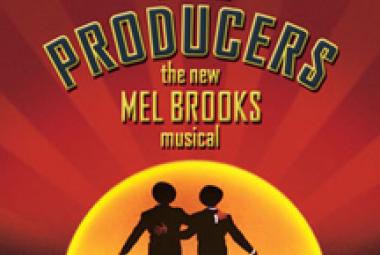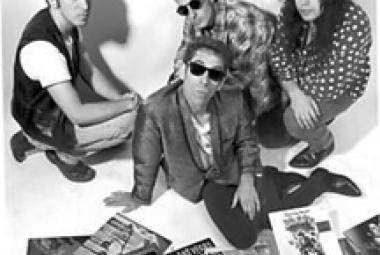Writing for Allmusic, Mark Deming raves: “Most of the tunes on Brian Olive are rooted in rhythm & blues in one way or another, but the man sure isn’t shy about showing how many ways he can bend the sound to his will; ‘Stealin’’ is a funky New Orleans second-line shuffle, ‘Jubilee Line’ has a bassline James Jamerson would have been happy to call his own fortified with free jazz sax wailing, ‘High Low’ reveals echoes of 1950’s cool jazz for bachelor pads, and ‘Killing Stone’ is a piano-based rocker that recalls the early-’70s Rolling Stones. [Brian] Olive also dips his toes into breezy faux-tropicalia on the light and sensuous ‘Echoing Light’ and some tripped-out acoustic psychedelia on ‘There Is Love’. Olive clearly scores high on the eclecticism checklist, but he’s also a fine songwriter, generating memorable tunes regardless of his stylistic bag. . . . Overall, Brian Olive is an impressive and pleasing solo debut that shows his chops as a producer, arranger, and songwriter make him more than just some Midwest sideman, and he should get back into the studio posthaste if there’s more where this came from.”
Brian Olive did as Mark Deming of Allmusic suggested; he was apparently already working on his second album, Two of Everything (2011) when the first one, Brian Olive came out. Dan Auerbach of the Black Keys co-produced the album with Olive, and the two also share engineering duties on this venture. Auerbach provides backing vocals along with five women.
Mark Deming was just as enthusiastic about this album in his Allmusic review: “Two of Everything doesn’t sound like [Brian] Olive has turned his back on his blues-based earlier work, but he is veering in a different direction; the results sometimes suggest a Midwestern take on Northern soul as Olive and [Dan] Auerbach throw just a little pop polish on Olive’s vocals and let the pianos and saxophones give the music a subtle but distinct retro feel, even as the steady pulse of several tunes nods politely to hip-hop. But even as Two of Everything travels down a smoother road than its precursor, it still sounds organic, committed, and heartfelt; and Olive sure knows how to write a memorable tune: ‘Strange Attracter’ faces a chunky, T. Rex-style guitar figure against an insistent piano-and-drum pattern that fills up the dance floor; ‘Back Sliding Soul’ suggests an unlikely but effective collaboration between NRBQ and Mark Ronson; ‘Left Side Rock’ bounces hard Southern funk rhythms off aggressive horn samples, and ‘Lost in Dreams’ is a beautifully languid bit of stoned soul love pleading. With Two of Everything, Brian Olive is two for two in making smart, distinctive albums that push his blues and R&B influences in unexpected, compelling directions, matching and building on the strength of his debut.”
(February 2015)
* * *
The Allmusic review by Mark Deming has this to say: “While the Human Zoo could add a trippy edge to their songs (such as ‘I Don’t Care No More’), they (at least as captured on this album) were at their best when they rocked out, and it’s on numbers like ‘Na-Na’ and ‘Funny’ that the Human Zoo really connect, while ‘Gonna Take Me a Ride’ and ‘Help Me’ reveal they weren’t bad with blue-eyed soul stuff, either. The production is simple, but also captures the performances in a clean and natural fashion and is thankfully short on the studio trickery often inflicted on lesser-known psych acts. The recording seems to favor the band’s live sound, and if the Human Zoo sounded this tight on-stage, it’s hard to say why they didn’t attract greater notice at the time.”
(July 2015)
* * *
Mark Deming in Allmusic states: “Although the band had been solid before, the new lineup evolved into a powerhouse; [Bob] Bennett wasn’t afraid to hit the drums hard, Larry [Parypa]’s guitar work had become sharper and more ferocious with time, and when [Gerry] Roslie was encouraged to sing, they discovered he could wail like a leather-lunged Little Richard, and the Sonics quickly became the most talked-about band in the Northwest.”
* * *
In his 5-star review of the MC5 album, Mark Deming raves in Allmusic: “Kick out the Jams is one of the most powerfully energetic live albums ever made; Wayne Kramer and Fred ‘Sonic’ Smith were a lethal combination on tightly interlocked guitars, bassist Michael Davis and drummer Dennis Thompson were as strong a rhythm section as Detroit ever produced, and Rob Tyner’s vocals could actually match the soulful firepower of the musicians, no small accomplishment. Even on the relatively subdued numbers (such as the blues workout ‘Motor City Is Burning’), the band sounds like they’re locked in tight and cooking with gas; while the full-blown rockers (pretty much all of side one) are as gloriously thunderous as anything ever committed to tape. This is an album that refuses to be played quietly.”
* * *
Writing for Allmusic, Mark Deming says of their debut album, The Stooges: “[The Stooges] didn’t really sound like anyone else around when their first album hit the streets in 1969. It’s hard to say if Ron Asheton, Scott Asheton, Dave Alexander, and the man then known as Iggy Stooge were capable of making anything more sophisticated than this; but if they were, they weren’t letting on, and the best moments of this record document the blithering inarticulate fury of the post-adolescent id. Ron Asheton’s guitar runs (fortified with bracing use of fuzztone and wah-wah) are so brutal and concise they achieve a naïve genius, while Scott Asheton’s proto-Bo Diddley drums and Dave Alexander’s solid bass stomp these tunes into submission with a force that inspires awe. And Iggy’s vividly blank vocals fill the ‘so what?’ shrug of a thousand teenagers with a wealth of palpable arrogance and wondrous confusion.”
* * *
Mark Deming, again from Allmusic: “Kill City never hits as hard as the manic roar of the Stooges’ Raw Power, but the songs are very good, and the album’s more measured approach suits the dark, honest tone of the material. The sense of defeat that runs through ‘Sell Your Love’, ‘I Got Nothin’’, and ‘No Sense of Crime’ was doubtless a mirror of Iggy’s state of mind; but he expressed his agony with blunt eloquence, and his sneering rejection of the Hollywood street scene in ‘Lucky Monkeys’ is all the more cutting coming from a man who had lived through the worst of it.’”
(December 2016)
* * *
In his
Allmusic review of
Lust for Life – featuring a smiling
Iggy Pop on the front cover (unlike the fierce persona he presented on the
Stooges album covers) –
Mark Deming writes: “On
The Idiot,
Iggy Pop looked deep inside himself, trying to figure out how his life and his art had gone wrong in the past. But on
Lust for Life, released less than a year later,
Iggy decided it was time to kick up his heels, as he traded in the midtempo introspection of his first album and began rocking hard again. Musically,
Lust for Life is a more aggressive set than
The Idiot, largely thanks to drummer
Hunt Sales and his bassist brother
Tony Sales.
The Sales [brothers] proved they were a world-class rhythm section, laying out power and spirit on the rollicking title cut [‘
Lust for Life’], the tough groove of ‘Tonight’, and the lean neo-punk assault of ‘Neighborhood Threat’; and with guitarists Ricky Gardiner and Carlos Alomar at their side, they made for a tough, wiry rock & roll band – a far cry from the primal stomp of the Stooges, but capable of kicking Iggy back into high gear. . . . On Lust for Life, Iggy Pop managed to channel the aggressive power of his work with the Stooges with the intelligence and perception of The Idiot, and the result was the best of both worlds; smart, funny, edgy, and hard-rocking, Lust for Life is the best album of Iggy Pop’s solo career.”
* * *
Writing for
Allmusic,
Mark Deming notes: “
Brick by Brick refined
Iggy [Pop]’s gifts without watering them down, adding a polish that focused his talents rather than blurring them. Working with a mixture of
L.A. session heavyweights (
Waddy Wachtel,
David Lindley) and rock stars paying their respects (
Slash and
Duff McKagan from
Guns N’ Roses,
Kate Pierson from
the B-52’s),
Brick by Brick leans to tough, guitar-based
hard rock, leavened with a few more pop-oriented tunes that still speak of a hard-nosed lyrical approach. But the triumph here is
Iggy’s; he’s rarely sung better on record, finding a middle ground between precision and abandon that honors both and surrenders to neither, and as a lyricist he reached a new level of maturity that proved he could expand his boundaries without losing touch with his roots. . . . Smart, tough, and impressive on all counts,
Brick by Brick was
Iggy Pop’s strongest work since
Lust for Life, and marked a new high point in his career as a songwriter.”
* * *
Against the odds,
Iggy Pop turns 70 next month, and his music is as vital as ever. His most recent album,
Post Pop Depression (
2016), ranks 4 stars from
Allmusic;
Mark Deming writes: “When it was announced that
Iggy Pop would be collaborating with
Josh Homme of
Queens of the Stone Age, the music press buzzed with anticipation about the project. What would the
proto-punk icon and the snarky
hard rock smart guy come up with? The surprise answer is
2016’s
Post Pop Depression,
in many respects an unwitting but loving tribute to Pop’s friend and collaborator David Bowie. Post Pop Depression arrived two months after Bowie’s death, and was completed before his health problems became common knowledge. More than anything, though, this music evokes the sound and feel of Pop’s first two solo albums. 1977’s The Idiot and Lust for Life were cut with Bowie in Germany as Pop struggled to make sense of his life and career after the Stooges collapsed. With the reunited Stooges gone following the deaths of Ron [Asheton] and Scott Asheton, Post Pop Depression finds Pop returning to the work he made in 1977, in ways that count the most. Post Pop Depression is smart and thoughtful, intelligent without being pretentious, and full of bold but introspective thinking.”
* * *
Writing for
Allmusic,
Mark Deming says of the band: “One of the first and finest bands to emerge from
San Francisco’s
punk scene,
the Avengers were originally together for only two years, and they didn’t release an album during that period. But their passionate music and uncompromising viewpoints proved to be a major inspiration in a scene that would grow and flourish long after they broke up, and the handful of singles they left behind documented a band of uncommon power and force. Just as importantly, lead singer
Penelope Houston was one of the pioneering women of
American punk, proving there was a place for female artists in the new music.”
* * *
“Even
the Weirdos copped to the fact that the death of
Elvis was fractionally more important than their first record. ‘
The King Is Dead’ was scratched into the metal stamper of the
Bomp release
‘Destroy All Music’ that became a classic of
late 1970’s L.A. punk, and prompted critic
Mark Deming to call the band ‘one of the best and brightest
American bands of
punk’s first wave.’”
* * *
Mark Deming says of the band for
Allmusic: “If
the Ramones had been a road-tested biker gang instead of pop-obsessed cartoon speed merchants, they might have sounded something like
the Lazy Cowgirls. Merging the buzzsaw roar of
first-wave punk, the sneering attitude of
’60’s garage rock, the heart-on-your-sleeve honesty of
honky-tonk, and the self-assured swagger of
the Rolling Stones,
the Lazy Cowgirls play raw, sweaty
outlaw rock and roll at its most furiously passionate and physically intense; like a
Harley gunned up to 95 mph,
the Lazy Cowgirls may not sound safe, but they sure are fun.”
* * *
The next outing by
the Lazy Cowgirls was a live album; as fine as their studio recordings are, where the band really excelled was on stage (they tell me). The first album released by the esteemed record label called
Sympathy for the Record Industry was
Radio Cowgirl (
1989), recorded live at a local radio station,
KCSB-FM.
Mark Deming writes of this album for
Allmusic: “A promo spot advertising the broadcast that kicks off this album proclaims that
the Lazy Cowgirls will play ‘loud, fast,
hard rock & roll music’, and it’s hard to disagree. There are a few sloppy moments here and there (be warned: This is real
rock & roll, where not everything is supposed to be perfect), and the sound is a bit thin (like the un-retouched two-track recording it is); but all four
Cowgirls are clearly audible and pouring their heart and soul into every moment of the show (even on the joke cover of the theme from
Green Acres). Besides, how many bands can cover
the Ramones and
the Saints alongside
Larry Williams and
Jim Reeves and actually do justice to all of ’em?”
* * *
* * *
After
the Lazy Cowgirls packed it in,
Pat Todd formed another band, taking its name from one of their classic albums,
Pat Todd and the Rankoutsiders. Their first release is a 2-CD album on their own label
(Rankoutsider Records) called
The Outskirts of Your Heart (
2007).
Mark Deming again, for
Allmusic: “In
2004,
the Lazy Cowgirls, long one of the best-kept secrets in
American rock & roll, finally called it quits after nearly 25 years of inspiring music, but lead singer and principal songwriter
Pat Todd clearly isn’t ready to throw in the towel just yet.
Todd has formed a new band,
the Rankoutsiders, who follow a similar path to the latter-era
Cowgirls – fast and loud
old-school punk on one hand, and hard but heartfelt
honky tonk on the other. However, unlike
the Lazy Cowgirls,
the Rankoutsiders can handle the quieter
country material with the same sure hand as the louder, frantic rock stuff; and
Todd’s first album with the band,
The Outskirts of Your Heart, is his most impressive melding to date of his two great (musical) loves.”
(March 2017)
* * *
Ultimately, a revised edition of Let it Be came out in 2003, due to the hostility by many to Phil Spector’s production efforts on the original album. It was called Let it Be . . . Naked and purportedly stripped the additions and corrections made by Spector to the original Beatles recordings. As with the Iggy Pop remix of the Stooges album Raw Power, however, successfully redoing an album that has been heard for many years by basically everyone having any interest at all in the music is easier said than done. Mark Deming notes in Allmusic: “In 1997, when Columbia made plans to issue a new edition of Raw Power, they brought in [Iggy] Pop to remix the original tapes and (at least in theory) give us the ‘real’ version we’d been denied all these years. Then the world heard Pop’s painfully harsh and distorted version of Raw Power, and suddenly [David] Bowie’s tamer but more dynamic mix didn’t sound so bad, after all.”
(September 2017)
* * *
The
Wikipedia article notes some of the critical reaction to
Kill City: “
Nick Kent of
New Musical Express called it ‘a great album’.
Mark Deming of
Allmusic called the album ‘a minor triumph’, writing: ‘The music is more open and bluesy than on
Raw Power, and while
[James] Williamson’s guitar remains thick and powerful, here he’s willing to make room for pianos, acoustic guitars and saxophones; and the dynamics of the arrangements suggest a more mature approach after the claustrophobia of
Raw Power.’
Martin Aston of
BBC Music praised the album, calling it ‘
Iggy’s most underrated album’ and one that ‘helped him get back to real life’.
The Wire placed
Kill City in their list of ‘
100 Records that Set the World on Fire (While No One Was Listening)’.”
(December 2017)















